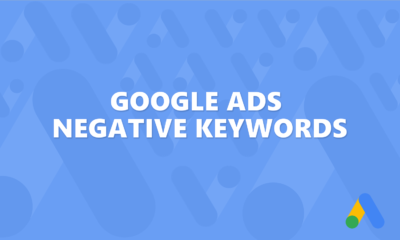Understanding how match types work is a key component to Google ads management. If you simply throw some relevant keywords in your account without regard to match type, you could end up wasting a lot of money.
When setting up your keywords, match type can make or break you. If you’re too broad, you can end up with a ton of wasted spend. If you’re too specific, you may not get the search volume you need and end up short on clicks at the end of the month.
Here’s a breakdown of each keyword match type, along with their respective pros and cons.
Broad Match Keywords
Broad keywords do not carry with them any extra symbols and may be matched with misspellings, synonyms, related searches, and other relevant variations. In the example pictured, the broad keyword “women’s hats” could match up with the query “buy ladies hats.”
Broad match terms are good for attracting a wide variety of keywords related to your term. Some ad managers use broad terms to find new keyword ideas. Others use them to widen their net if they are struggling with search volume.
On the flip side, broad match terms can be matched with all sorts of terms that you would not want to pay for. To control wasted spend, it’s important to have a solid negative keyword list and that you are frequently reviewing the search term report for words that needed to be filtered out.
Phrase Match Keywords
UPDATE: Phrase match has now taken on the same match type as broad match modified. See the below section to read about broad match modified which has been deprecated.
Phrase match keywords, denoted with quotation marks, will be matched up with words that are a phrase or close variations of that phrase. For example, the keyword “women’s hats” would be matched up with “buy women’s hats.”
This match type is a great starter for a new ad account. It commonly will attract enough search queries without grabbing everything but the kitchen sink. Conversely, it’s loose enough that you’re still getting a good amount of traffic (which can be an issue with more specific match types).
There’s still good reason to be careful with phrase match, however. For example, if you are a real estate agent and are more interested in buyers than sellers, then it would be more helpful to use terms such as “buy homes in brentwood” rather than “homes in brentwood.” Otherwise, you may also attract people who are trying to sell homes in Brentwood as well.
Exact Match Keywords
Exact match, denoted by brackets, are for the exact search term and close variations of that exact search term. For example, [women’s hats] would be matched with women’s hats.
This is a great way to add words exactly how they are appearing in your search term reports. If you have a very specific term that’s converting well, you already have proof of concept and should feel pretty good about adding it. And, since it’s so specific, you may have a better chance at winning the bid.
All the things that make exact match desirable can also have the potential to hold back an ad group’s success. For example, if you rely too heavily on exact match only, you may find yourself narrowing your focus too much and could struggle with getting enough impressions.
Broad Match Modified Keywords
UPDATE: Broad match modified is no longer an option and has been deprecated. This match type has now been added to phrase match. So, phrase match continues to carry its initial definition plus it takes on the same match type definition as broad match modified.
Broad match modified, denoted by plus signs before each word, is for attracting queries that include the words that have the plus sign. Close variations also can be matched, but not synonyms, and the order does not matter. For example, the term +women’s +hats would be matched with hats for women.
This is a great match type for casting a wide net, but one that’s still pretty tight. For example, if you know you want dental implant patients in Chicago, rather than trying to come up with every single possible way this could be searched, you could add +dental +implants +chicago.
Even with such specificity, it’s still possible to get words you don’t want with broad match modified. In some ways, this makes it nearly as dangerous as broad match. If you’re going to go this route, consider aiming for at least three terms and check the search terms report regularly for any wasted spend.




